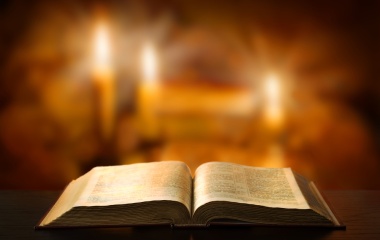
Historians and sociologists have long debated whether it is historical trends that determine the course of events, the historical personalities being of little significance, or whether it is people of great stature who shape the course of history.
Undoubtedly the answer is a combination of both, though the dominance of one over the other will vary from generation to generation. In some generations historical currents hold sway whereas in others it is the people who shape the events.
There is little doubt that it was towering figures of rabbinic greatness, most in the immediate aftermath of the Holocaust, who transformed America from a spiritual wasteland into a place where Torah could flourish. America was not, and is still not - though to a lesser degree -, receptive to the message of Torah. Yet the tenacious efforts of a great people changed the course of history.
On the other hand one often finds that political leaders reflect the trends in society and it is not surprising that so many have so little influence on the development of society. They reflect but do not guide society and often are beneficiaries of being in the right place at the right time.
Pesach is the holiday that marks the beginning of Jewish history. It is the exodus, even more so than the giving of the Torah at Sinai, that shapes our identity. There is a daily mitzva to remember the exodus, culminating in the mitzvah to re-tell and relive the exodus story each Pesach. So many of our mitzvot serve as a remembrance to the exodus; Shabbat, tefillin, mezuzah, even honesty in our business dealings (Vayikra 19:35-36). Our social ethos - to be kind to the stranger, widow and orphan is rooted in our experience as slaves.
Jewish history is greater than any one person. G-d created the world with the Jewish people in mind and their historical destiny already determined (see Rashi Breisheet 1:1).
Man's role in our historical development is deemphasized, even ignored. "The Lord took us out of Egypt,not through an angel...not through a messenger. The Holy One blessed be He did it in His glory by Himself. I and not a messenger, I and none other." Moshe's role is so insignificant his name does not even appear in the Hagadah.
Yet even the most cursory reading of the actual exodus story will make it abundantly clear the indispensable role that Moshe played. Without him there could have been no exodus. And thus G-d literally forced Moshe to take on this mission - "I am sending you to Pharaoh. Bring My people out of Egypt " (3:10).
Moshe was G-d's messenger, entrusted to redeem the Jewish people. Yet at the same time Moshe was almost irrelevant to the events of the exodus. If not for Moshe G-d would have chosen someone else. G-d's plan for Jewish history - foretold hundreds of years in advance - called for both the enslavement of the Jewish people and their subsequent redemption. And this was going to happen with or without Moshe. It may have taken a different course, but the exodus was going to happen. Moshe was the one given the opportunity to partner with G-d in the redemption. While our role may be less, we too have many opportunities to partner with G-d. It would be a shame not to take advantage of them.
Furthermore Moshe Rabbeinu's ascension to leadership was needed for the teaching of Torah. It is man and not G-d that determines the development of Torah. The Torah's statement that "It [Torah] is not in heaven" is understood by our Sages to limit the role of G-d and His prophets in the interpretation of Torah. It is man and man alone who must interpret the meaning of Torah and apply it to our ever evolving lives. And it was Moshe Rabbeinu, the teacher par excellence of the Jewish people who was needed to bring the heavenly Torah to earth.
"In Nissan we were redeemed and in Nissan we will be redeemed." (Rosh Hashanah 10b) It would appear that our future redemption is a function of history and will be unaffected by human action. However Isaiah (60:22) prophesizes that G-d will "hasten it [redemption] it its time". The ultimate redemption is part of G-d's master plan and will eventually occur "in its time" no matter what we might do. But we have the ability to "hasten" the redemption.
It is our actions that hasten - or delay- redemption. While the beginnings of Jewish history may have been preordained the future of the Jewish people is in our hands. Let us do our part so that we can see the complete fulfillment of "next year in a built up Jerusalem".



